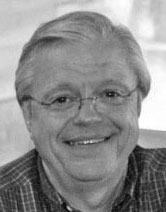“The true purpose of the arts education is not necessarily to create more professional dancers or artists. It’s to create more complete human beings who are critical thinkers, who have curious minds, who can lead productive lives.”
— Kelly Pollock, executive director Center of Creative Arts
“Why is algebra required in school? Nobody uses it in everyday life.”
That wasn’t the first time I’d heard that question. But hearing it again a few days ago, I quipped, “You haven’t seen my math grades, or you wouldn’t be asking me.”
Truthfully, educating the mind to become a wellrounded or “complete human being” requires more than “book learning,” as my grandfather called it.
His testimony can be entered into the record with credibility. He went to work at age 13 to help support his family and enjoyed a rewarding career.
Achieving a productive life requires curiosity about life beyond one’s chosen field.
For example, consider the story of a good friend and former colleague. He was an outstanding high school athlete and honor-roll student when he was confronted by one of his teachers.
“Why are you wasting your time on football instead of concentrating on something that will help you in the real world?” the educator said.
If he shared his response that day, I’ve since forgotten it. But I will not soon forget his statement to that teacher a few years later.
By that time, my friend had graduated from a major university on a full-ride football scholarship, was an honor student and also was an outstanding player who helped the team reach a post-season bowl game.
Visiting his hometown high school after college, he found the teacher who had downplayed his participation in sports by insinuating athletics had no value in the “real world.”
He shared with that teacher one of the more valuable lessons he had learned at the university: He told me the lesson is, “The value in sports is not a question of its direct application to ‘real-life’ knowledge, but in what it adds to becoming a productive member of society. Sports teaches goals, objectives, teamwork, strategy, planning and success— skills needed to effectively use an education in the real world.”
Then he added, “Oh, and it paid for my education.”
For what it’s worth, today he is the CEO of an international corporation and a staunch supporter of athletics in public schools.
My educational highway was a little bumpier than his. I graduated not cum laude, but more like, “Lawdy, how come?”
And my titles have more closely resembled something scripted on an executive coffee cup: “I’m in charge. My specialty is creating problems you didn’t know you had.”
While my friend was a football player, I was a band nerd. I didn’t wear a number and you wouldn’t find my name in the program. But I made appearances at two Cotton Bowl games plus a couple of Dallas Cowboy and Houston Oiler exhibition games while performing with the band at halftime.
Did any of that add to my career opportunities as much as the academic qualifications on my transcript did?
Probably not. But like all forms of the arts and extracurricular activities, it helped even me become a somewhat more complete human, one capable of thinking and communicating to lead a productive life while using my “book learning.”
Participating in band gave me an appreciation for music beyond the rock ‘n’ roll I listened to on the radio. It left me with a lifelong desire to know more about music and the arts, inspiring me to learn how to play other musical instruments. It afforded me a broader appreciation of all kinds of music, not the least of which has been leading congregational singing at church — something I’ve done all my adult life.
Best of all, the band gave me memories. Hands down, the fondest memories of my school years.
As for algebra? While I admit we use it every day in ways we don’t even realize, I must confess I could easily forget about math classes.
— Contact Aldridge at [email protected]. Other Aldridge columns are archived at leonaldridge.com

.png)






